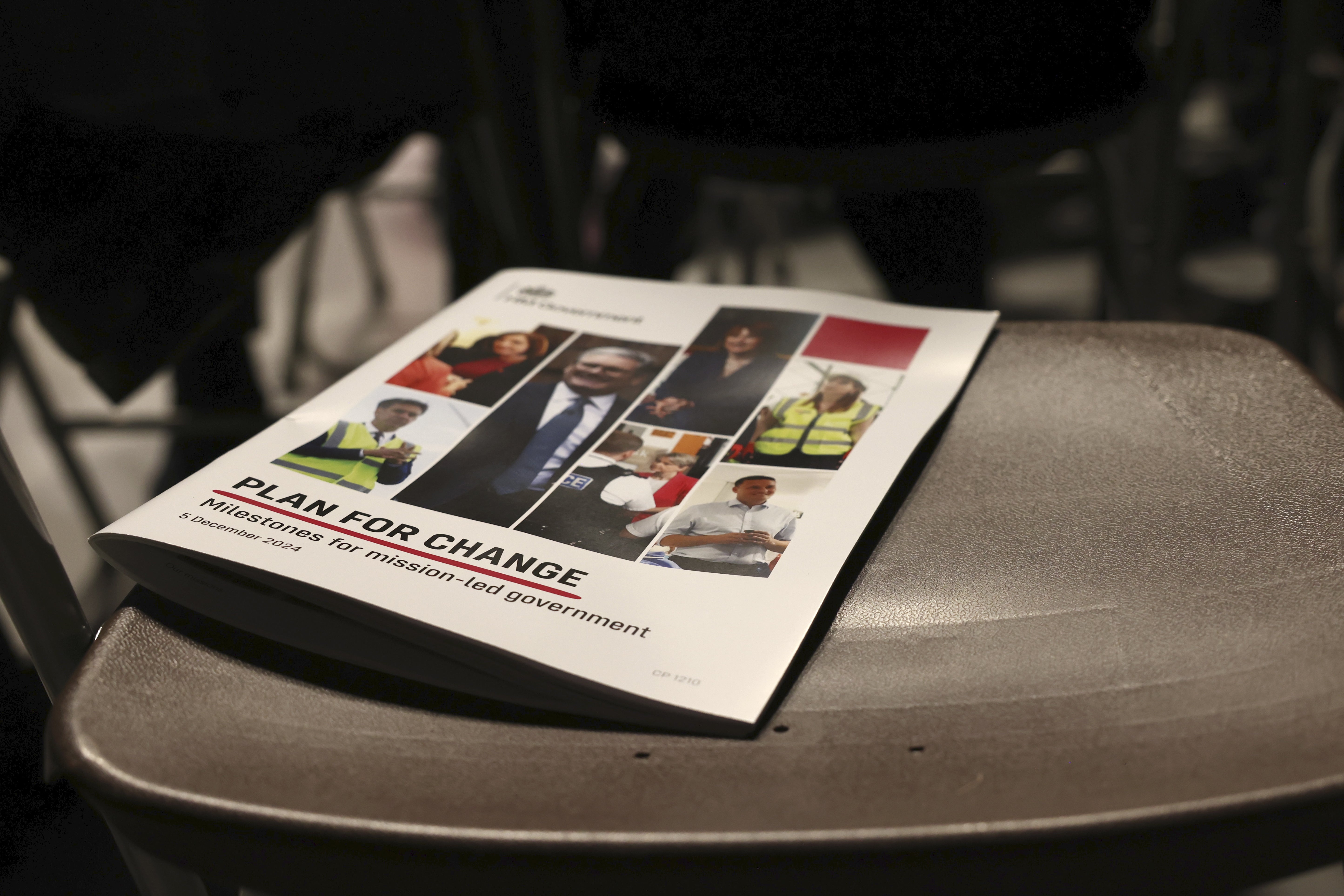
The Prime Minister insisted he was sticking to his missions as he set out “ambitious” targets for Whitehall, despite claims he was “watering down” promises.
In a speech at Pinewood Studios on Thursday, Sir Keir Starmer sought to strike an optimistic note after a challenging five months in power, saying Britain was “broken, but not beyond repair” and could still “do great things”.
Arguing his Government had taken action to “fix the foundations”, Sir Keir set out six “milestones” that he said would allow the public to “hold our feet to the fire” on the missions he set for himself before the election.
Chief among them was a promise to deliver higher living standards by the next election, saying growth must be “felt by everyone, everywhere”, while insisting his long-term aim was still to make the UK the fastest-growing G7 economy.
But he declined to put a specific numerical target on living standards, saying only that he wanted to see real household disposable income and GDP per capita rise in every region of the country.
He also declined to provide a specific target for immigration, which did not feature as one of his “milestones”. The Prime Minister said he instead regarded controlling borders as a “foundational” part of governing, separate from the changes he needed to make.
Sir Keir denied that Thursday’s speech – branded an “emergency reset” by Conservative leader Kemi Badenoch – represented a change of plan, saying it “doubles down on our national missions” which have “remained robust” since they were announced two years ago.

But he also faced accusations of watering down his plan to decarbonise the power grid by 2030, after saying the target was now to have “at least 95%” clean power generation by that year.
Labour insisted the two statements were consistent, with Net Zero Secretary Ed Miliband saying the remaining 5% was due to the need to maintain a strategic gas reserve.
Other targets announced on Thursday were building 1.5 million homes, making 150 planning decisions on major infrastructure projects, ensuring that 92% of patients waited no longer than 18 weeks for NHS treatment, providing a named police officer for every neighbourhood, and having 75% of children start school with a good level of development.
The Prime Minister described the targets as “ambitious”, saying they were “not about making the Government look good” but were instead meant as a challenge to a Whitehall that had grown “comfortable in the tepid bath of managed decline”.

In the foreword to a document laying out his plan, the Prime Minister said promised “a profound cultural shift away from a declinist mentality” as well as honesty about the “trade-offs” required to achieve his aims.
He also argued that successful delivery was the way to counter the rise of populist politics in the UK, saying it “feeds off real concerns”.
But the Resolution Foundation think tank, while saying the Government was “right” to put living standards “at the heart of its economic agenda”, described Sir Keir’s target as “not very stretching” and “the bare minimum for any functioning government”.
Real household disposable income has risen in every parliament since 1955 and GDP per capita has risen in all but two, and Resolution Foundation interim chief executive Mike Brewer said the Government would need to “absolutely smash” its targets “if they are to truly end stagnation across Britain”.
This government has a Plan for Change.
— UK Prime Minister (@10DowningStreet) December 5, 2024
Our long-term missions will improve the lives of working people and strengthen our country.
Progress will be measured by ambitious milestones. pic.twitter.com/XvZjPRO85x
Responding to the speech, Tory leader Kemi Badenoch said the Prime Minister’s “emergency reset” showed Labour had not been “ready for government”.
She also claimed the Government’s “costly plans for energy decarbonisation” had been “watered-down”, and “fewer than a third of Labour’s 13,000 neighbourhood police are actually new police officers”.
Ms Badenoch added: “This relaunch can’t hide the reality of a Government that doesn’t know what it is doing.”
Liberal Democrat leader Sir Ed Davey said the Prime Minister was “simply moving the goalposts” and described the lack of a target for GP appointments as “worrying”, while Reform UK leader Nigel Farage criticised the lack of a target on immigration.







